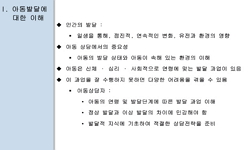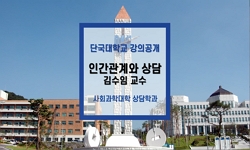본 논문의 목적은 상담의 과정을 초자아의 변화라는 관점에서 이해하는 데 있다. 이것은 상담을 통해 내담자 가 새로운 초자아를 내적 구조에 형성함으로 치료의 긍정적 방향을 가져올 수 ...
http://chineseinput.net/에서 pinyin(병음)방식으로 중국어를 변환할 수 있습니다.
변환된 중국어를 복사하여 사용하시면 됩니다.
- 中文 을 입력하시려면 zhongwen을 입력하시고 space를누르시면됩니다.
- 北京 을 입력하시려면 beijing을 입력하시고 space를 누르시면 됩니다.
https://www.riss.kr/link?id=A100524849
-
저자
장정은 (이화여자대학교)

- 발행기관
- 학술지명
- 권호사항
-
발행연도
2015
-
작성언어
Korean
-
주제어
초자아 ; 목회상담적 초자아 ; 아동상담 ; 상담관계 ; 받아들임 ; Superego ; Pastoral Superego ; Child Counseling ; Counseling Relationship ; Acceptance.
-
등재정보
KCI등재
-
자료형태
학술저널
-
수록면
175-201(27쪽)
-
KCI 피인용횟수
9
- 제공처
-
0
상세조회 -
0
다운로드
부가정보
국문 초록 (Abstract)
본 논문의 목적은 상담의 과정을 초자아의 변화라는 관점에서 이해하는 데 있다. 이것은 상담을 통해 내담자 가 새로운 초자아를 내적 구조에 형성함으로 치료의 긍정적 방향을 가져올 수 있음을 의미한다. 이미, 클라인(M. Klein)이나 스트라치(J. Strachey)와 같은 정신분석학자들은 정신분석 치료를 자아의 변화가 아닌 초자아의 변화의 결과로 보았다. 초자아의 가혹하고 엄격함이 완화되고 누그러지게 되는 것이 치료의 중심목 표가 되는 것이다. 여기에서 상담자는 상담관계를 통해 새로운 초자아의 자원을 내담자에게 제공해주는 역할 을 맡게 된다. 본 논문은 정신분석관점에서 접근한 실제 아동상담 사례를 통해서 상담에서 일어나는 초자아의 변화가 치료 의 핵심적인 조건이 된다는 것을 주장한다. 그것은 가혹하고 징벌하는 초자아에서 자애롭고 보호하는 초자아 로의 변화를 의미한다. 이런 과정을 통해 초자아는 자아를 파괴하고 압박하는 공격자가 아니라 오히려 자아의 내적 안정을 유지하고 일정한 목표를 제공하는 자아의 협력자로 기능한다. 프로이트에게 암시적으로 나타나 는 보호하고 사랑하는 초자아의 개념은 이후의 학자들에 의해 발전되었는데, 이 초자아의 형성이 상담의 핵심 목표가 된다. 아동 상담에 나타난 초자아의 변화에 대한 논의를 거쳐 본 논문은 “목회상담적 초자아”의 개념을 제시한다. 이 개념은 목회상담자가 제공하는 상담관계 안에 구현되어 나타나는 초자아를 의미하고, 이것은 내담자가 내 면화의 과정을 통해 새롭게 형성하게 될 초자아의 자원이 된다. 목회상담자의 상담 자세와 태도는 일반상담과 다른 상담적 초자아를 형성시킨다. 목회상담에서 이것은 받아들임의 궁극적 실재, 하나님의 은혜와 사랑에 근 거해 있다. 이 궁극적 실재의 대리자인 목회상담자를 통해 내담자는 보호하고 사랑하는 초자아를 형성하게 된 다. 실제 사례를 통한 이 논문의 논의는 목회상담의 치료적 관계를 이해하고 그 목표를 설정하는 이론적 토대 를 제공한다.
다국어 초록 (Multilingual Abstract)
This paper aims at understanding counseling process in terms of modification of superego. Introducing the concept of superego made it possible for the external object to influence individual psychic structure through the process of identification. T...
This paper aims at understanding counseling process in terms of modification of superego. Introducing the concept of superego made it possible for the external object to influence individual psychic structure through the process of identification. This implies that psychoanalytic therapeutic efforts can cure patients’ psychopathology through the process of forming a new superego structure into their inner world. This implies that qualities of analytic relationship become more important psychoanalytic method than interpretation. Melanie Klein and James Strachey already claimed that a therapeutic effect of analysis was a result of modification of superego. In other words, the central goal of psychoanalytic treatment is to alleviate strictness of patients’ persecuting superego and to replace the strict superego with a loving and protecting superego. Analysts play an important role of providing new resources of superego which patients internalize into their inner structures. In the same sense, this paper contends that modification of superego is a core requirement in the treatment of the pastoral counseling, presenting a case of child analysis in which a criticizing end aggressive superego built in a child’s inner world was substituted with a loving and protecting superego by providing the intervening process of play therapy. The alternation is closely related to change from severe and persecuting superego to loving and protecting superego, the concept of which has been developed in the psychoanalytic circle as a positive product of analytic intervention. As a result of this process, superego functions as a close ally of ego for sustaining the inner stability instead of ego-destructive superego. This paper, finally, present concept of “pastoral superego” which is embodied in the relationship offered by pastoral counselors. Pastoral superego functions the unique resource of superego of pastoral counseling relationship which clients internalize. This pastoral superego does not mean and derive from the superego which the pastoral counselors possess in their internal world. The feature of pastoral superego originates from the acceptance of Ultimate Reality. In other words, that is based on God’s love and grace which are revealed in the story of gospels. A pastoral counselor can be seen as an agent of this divine reality who facilitates the process of internalization of the loving and protecting superego. The pastoral superego can function as a contributive concept which integrates psychoanalytic tradition and theological tradition as the name suggests. The term of “superego” shows what the process of counseling should be and the concept of “pastoral” designates where the curing power is rooted.
목차 (Table of Contents)
- 초록
- I. 들어가는 말
- II. 초자아 개념의 발달 : 사랑하고 보호하는 초자아
- 1. 프로이트의 초자아
- 2. 클라인의 초자아
- 초록
- I. 들어가는 말
- II. 초자아 개념의 발달 : 사랑하고 보호하는 초자아
- 1. 프로이트의 초자아
- 2. 클라인의 초자아
- 3. 사랑하고 보호하는 초자아
- III. 사례연구
- 1. 사례배경
- 2. 첫 만남과 놀이치료
- 3. 문제의 분석
- 4. 초자아 구조의 변화
- IV. 초자아와 목회상담: 목회상담적 초자아
- V. 나가는 말
- 참고문헌
- Abstract
참고문헌 (Reference)
1 프리실라, 로스, "초자아" 이제이북스 2014
2 최주혜, "어린이 돌봄에 대한 여성 신학적 조명" 한국실천신학회 (39) : 307-327, 2014
3 박중수, "아동 성 학대에 대한 목회상담학적 개입" 한국실천신학회 (42) : 331-355, 2014
4 강문규, "독일 어린이 예배에 대한 교회교육학적인 문제점 고찰" 한국실천신학회 (39) : 355-388, 2014
5 권진숙, "도널드 위니캇의 안아주기 환경 개념의 여성목회신학적 재고와 목회적 돌봄" 한국실천신학회 (35) : 225-257, 2013
6 김성원, "개방형 문항(Open-Ended Questions)을 통해 본 어린이들의 하나님 개념" 한국실천신학회 (41) : 421-445, 2014
7 Jurist, Elliot L., "Whatever Happened to the Superego? Loewald and the Future of Psychoanalysis" 31 : 489-501, 2014
8 Ulanov, Ann Belford, "The Wisdom of the Psyche" Cowley publications 1988
9 Klein, Melanie, "The Psycho-Analysis of Children" Hogarth Press 1975
10 Aron, Lewis, "The Patient’s Experience of the Analyst’s Subjectivity" 1 : 29-51, 1991
1 프리실라, 로스, "초자아" 이제이북스 2014
2 최주혜, "어린이 돌봄에 대한 여성 신학적 조명" 한국실천신학회 (39) : 307-327, 2014
3 박중수, "아동 성 학대에 대한 목회상담학적 개입" 한국실천신학회 (42) : 331-355, 2014
4 강문규, "독일 어린이 예배에 대한 교회교육학적인 문제점 고찰" 한국실천신학회 (39) : 355-388, 2014
5 권진숙, "도널드 위니캇의 안아주기 환경 개념의 여성목회신학적 재고와 목회적 돌봄" 한국실천신학회 (35) : 225-257, 2013
6 김성원, "개방형 문항(Open-Ended Questions)을 통해 본 어린이들의 하나님 개념" 한국실천신학회 (41) : 421-445, 2014
7 Jurist, Elliot L., "Whatever Happened to the Superego? Loewald and the Future of Psychoanalysis" 31 : 489-501, 2014
8 Ulanov, Ann Belford, "The Wisdom of the Psyche" Cowley publications 1988
9 Klein, Melanie, "The Psycho-Analysis of Children" Hogarth Press 1975
10 Aron, Lewis, "The Patient’s Experience of the Analyst’s Subjectivity" 1 : 29-51, 1991
11 Rogers, Carl, "The Necessary and Sufficient Conditions of Therapeutic Personality Change" 21 : 95-103, 1957
12 Schecter, David E., "The Loving and Persecuting Superego" 15 : 361-379, 1979
13 Schafer, R., "The Loving and Beloved Superego in Freud’s Structural Theory" 15 : 163-188, 1960
14 Meissner, W. W., "The Ethical Dimension of Psychoanalysis" State University of New York Press 2003
15 Britton, Ronald, "Sex, Death, and the Super-ego: Experiences in Psychoanalysis" Karnac 2003
16 Makari, George, "Revolution in Mind: The Creation of Psychoanalysis" Harper Collins Inc. 2008
17 Stolorow, Robert D., "Psychoanalytic Treatment: An Intersubjective Approach" The Analytic Press 1987
18 Sandler, Joseph, "On the Concept of Superego" 15 : 128-162, 1960
19 Klein, Melanie, "In The Writings of Melanie Klein" Hogarth Press and the Institute of Psycho-Analysis 344-362, 1975
20 Freud, Sigmund, "In The Standard Edition of the Complete Psychological Works of Sigmund Freud" The Hogarth Press 3-182, 1964
21 Freud, Sigmund, "In The Standard Edition of the Complete Psychological Works of Sigmund Freud" The Hogarth Press 59-145, 1961
22 Freud, Sigmund, "In The Standard Edition of the Complete Psychological Works of Sigmund Freud" The Hogarth Press 237-260, 1957
23 Freud, Sigmund, "In The Standard Edition of the Complete Psychological Works of Sigmund Freud" The Hogarth Press 1-161, 1955
24 Freud, Sigmund, "In The Standard Edition of the Complete Psychological Works of Sigmund Freud" The Hogarth Press 3-56, 1961
25 Freud, Sigmund, "In The Standard Edition of the Complete Psychological Works of Sigmund Freud" The Hogarth Press 3-66, 1957
26 Freud, Sigmund, "In The Standard Edition of the Complete Psychological Works of Sigmund Freud" The Hogarth Press 73-102, 1964
27 Klein, Melanie, "In Melanie Klein: Envy and Gratitude and Other Works, 1946-1963" Free Press 56-60, 1975
28 Klein, Melanie, "In Melanie Klein: Envy and Gratitude and Other Works, 1946-1963" Free Press 1-24, 1975
29 Zizek, S., "How to Read Lacan" Granta 2007
30 Ryan, Jane, "How Does Psychotherapy Work?" Karnac 2005
31 Reiner, Annie, "Bion and Being: Passion and the Creative Mind" Karnac 2012
32 Bion, W. R., "Attacks on Linking" 40 : 308-315, 1959
33 Browing, Don, "Atonement and Psychotherapy" Westminster Press 1966
동일학술지(권/호) 다른 논문
-
상호포섭적 연합으로서의 설교적 해석 : 역설-긴장-성례적 모델
- 한국실천신학회
- 한재동
- 2015
- KCI등재
-
- 한국실천신학회
- 민장배
- 2015
- KCI등재
-
- 한국실천신학회
- 김정두
- 2015
- KCI등재
-
- 한국실천신학회
- 전창희
- 2015
- KCI등재
분석정보
인용정보 인용지수 설명보기
학술지 이력
| 연월일 | 이력구분 | 이력상세 | 등재구분 |
|---|---|---|---|
| 2027 | 평가예정 | 재인증평가 신청대상 (재인증) | |
| 2021-01-01 | 평가 | 등재학술지 유지 (재인증) |  |
| 2018-01-01 | 평가 | 등재학술지 유지 (등재유지) |  |
| 2015-01-01 | 평가 | 등재학술지 유지 (등재유지) |  |
| 2013-01-01 | 평가 | 등재학술지 유지 (등재유지) |  |
| 2010-01-01 | 평가 | 등재학술지 선정 (등재후보2차) |  |
| 2009-01-01 | 평가 | 등재후보 1차 PASS (등재후보1차) |  |
| 2007-01-01 | 평가 | 등재후보학술지 선정 (신규평가) |  |
학술지 인용정보
| 기준연도 | WOS-KCI 통합IF(2년) | KCIF(2년) | KCIF(3년) |
|---|---|---|---|
| 2016 | 1.81 | 1.81 | 1.61 |
| KCIF(4년) | KCIF(5년) | 중심성지수(3년) | 즉시성지수 |
| 1.53 | 1.4 | 0.653 | 0.62 |




 KCI
KCI eArticle
eArticle






